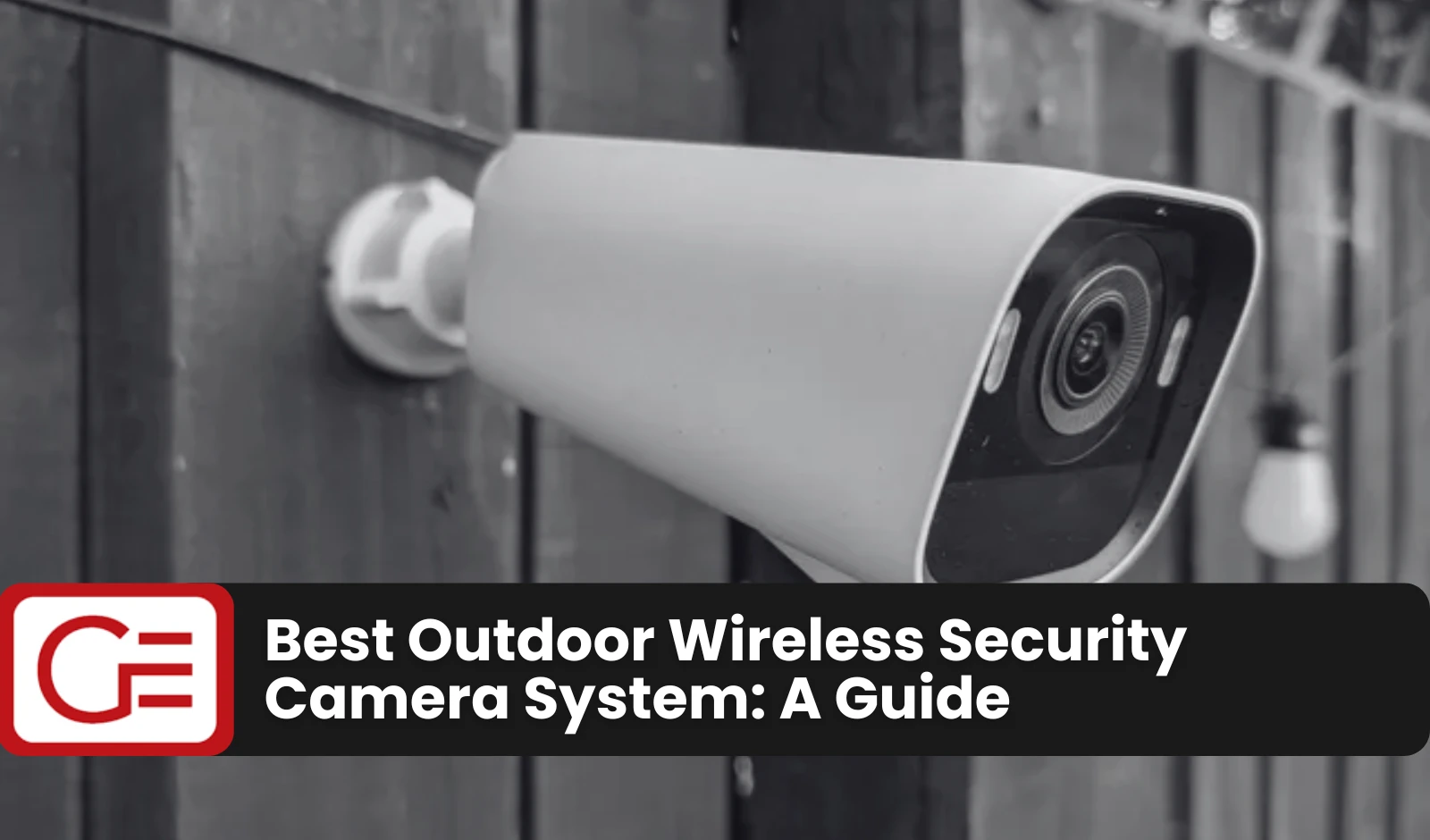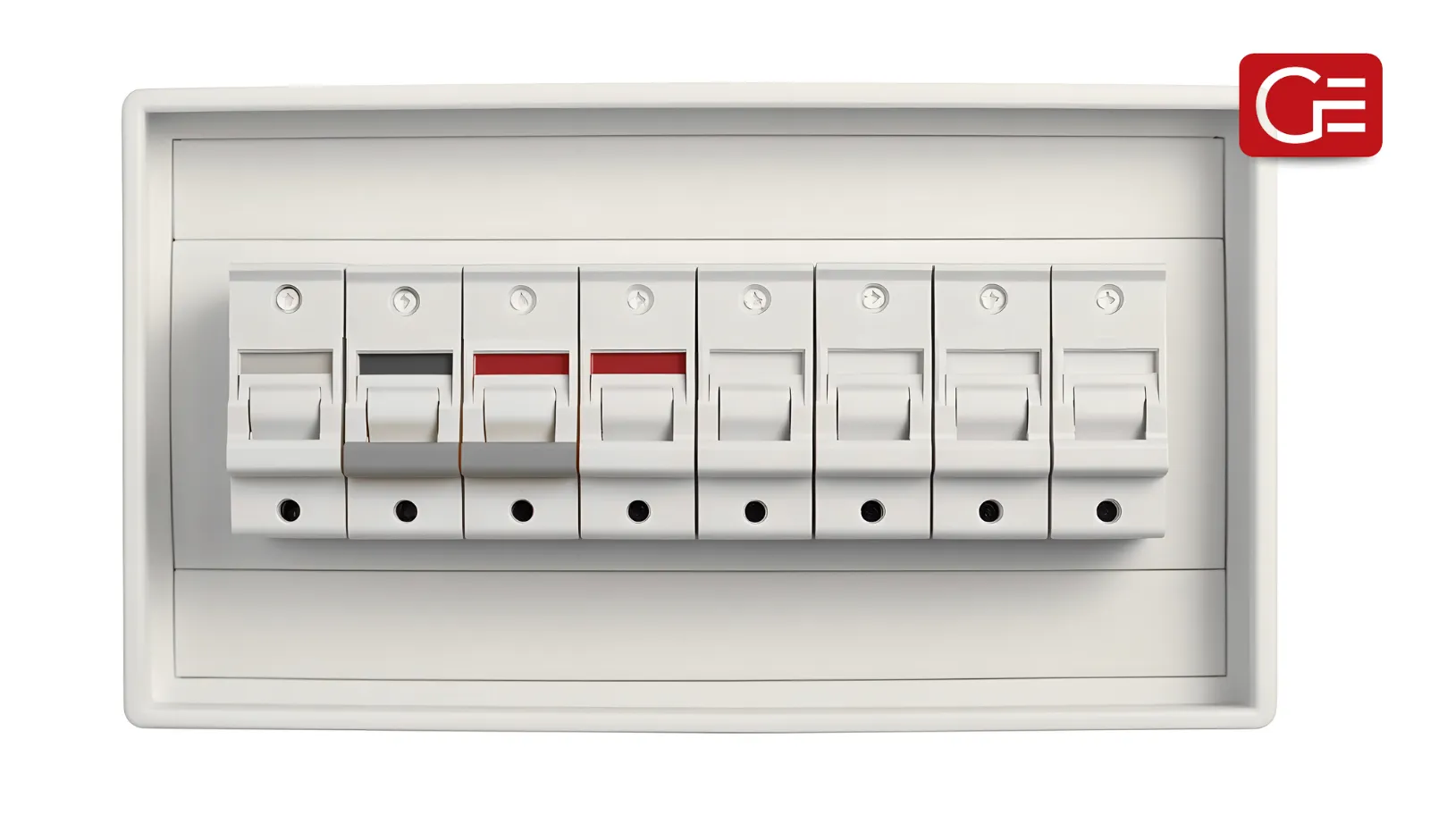

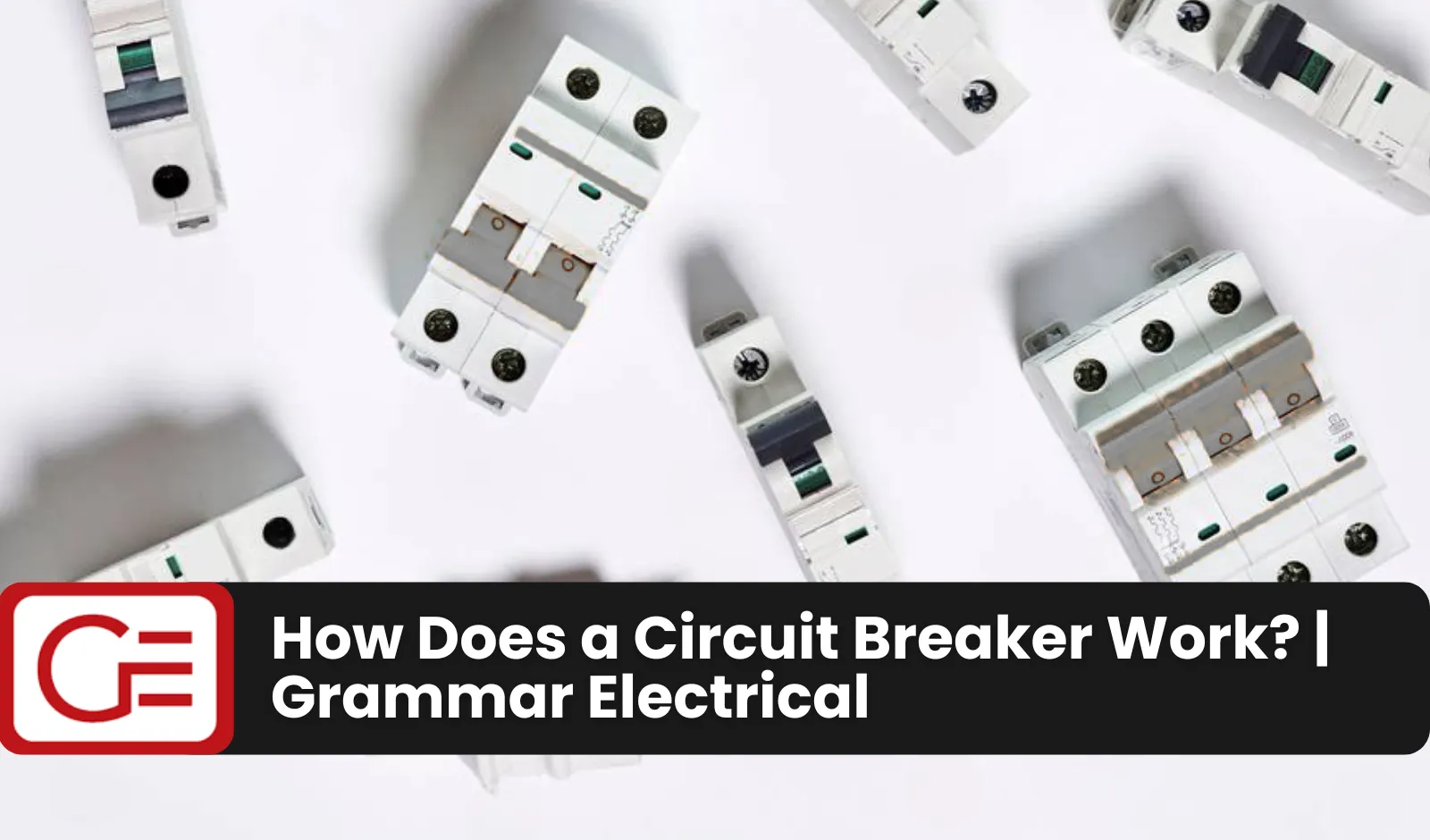
Every time you turn on a light or power up an appliance, a small but powerful device is working behind the scenes, your circuit breaker. It silently safeguards your home from electrical overloads, short circuits, and potential fire hazards.
But have you ever stopped to think about how a circuit breaker works and why it’s so important? Understanding how this essential safety device operates can help you recognise early warning signs of electrical issues and keep your home’s power system running safely and efficiently.

What Is a Circuit Breaker?
A circuit breaker is a safety device inside your switchboard (or electrical panel). Its job is to stop the flow of electricity whenever there’s a fault, like a power surge or overloaded circuit to prevent overheating, damage, or fire.
Think of it as your electrical system’s automatic bodyguard: always on standby, ready to “trip” the moment something goes wrong.
How Does a Circuit Breaker Work?
To understand how a circuit breaker works, it helps to know the two main ways it detects thermal and magnetic protection.
1. Thermal Protection (Overload):
When too many appliances draw power from the same circuit, the wires heat up. The circuit breaker has a small metal strip that bends when it gets hot. Once it bends enough, it triggers the mechanism to cut power.
2. Magnetic Protection (Short Circuit):
If a sudden surge of current occurs often from a short circuit or faulty wire, the breaker’s magnetic coil activates instantly. It releases a latch that disconnects power in milliseconds, stopping the fault before it causes serious damage.
By combining these two systems, circuit breakers protect your home from both gradual overloads and instant electrical faults all automatically.
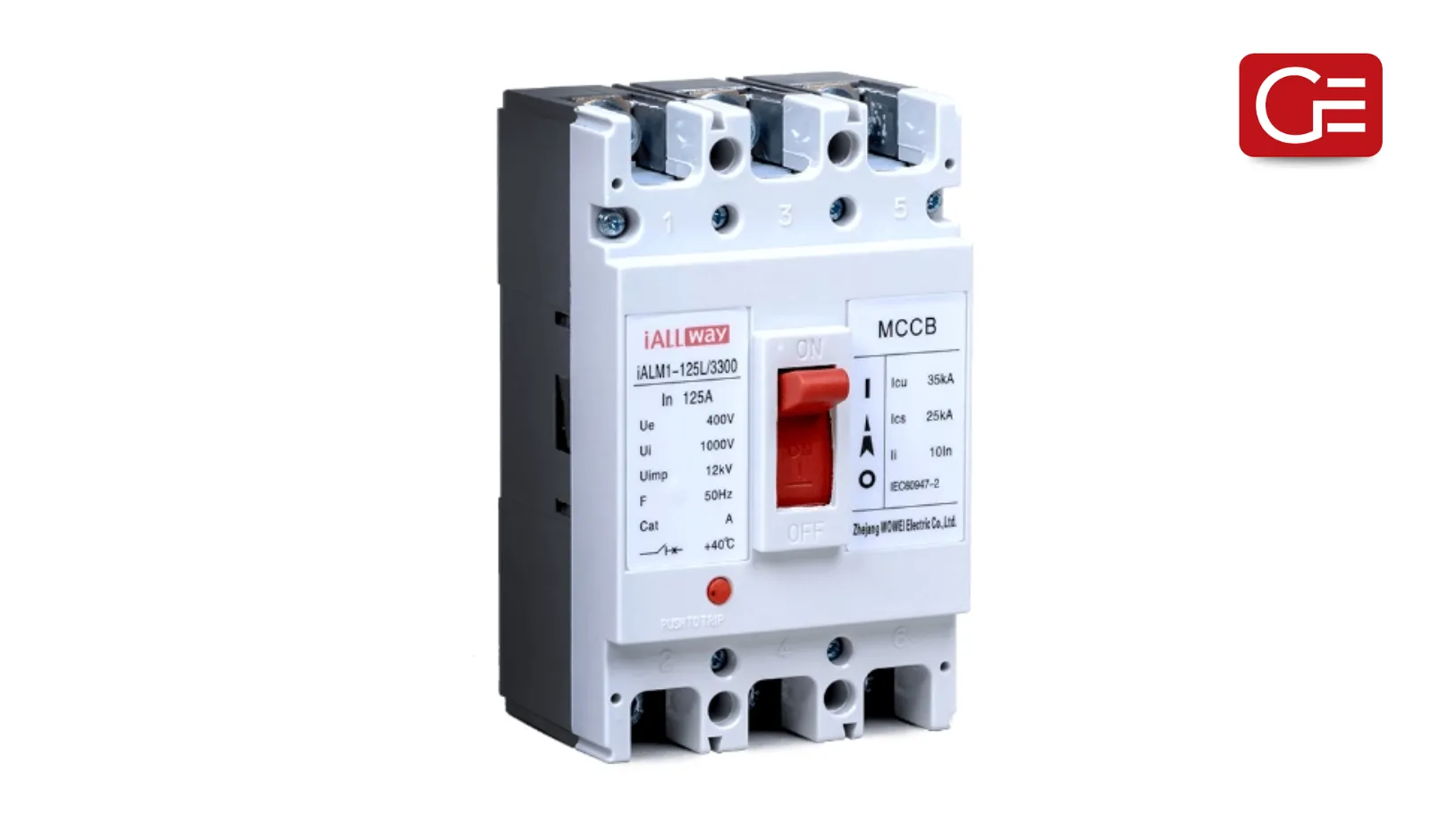
Different Types of Circuit Breakers
Not all breakers are created equal. Here are a few common types you might find in your home or business:
- Standard Circuit Breakers: Used for general lighting and power circuits.
- Ground Fault Circuit Interrupters (GFCIs): Protect you from electric shocks, especially in kitchens and bathrooms.
- Arc Fault Circuit Interrupters (AFCIs): Detect dangerous arcing that could cause fires behind walls.
- Miniature Circuit Breakers (MCBs): Used for smaller circuits and residential use.
- Molded Case Circuit Breakers (MCCBs): Handle larger loads in commercial or industrial settings.
Each plays a role in protecting your electrical system, and choosing the right one depends on the setup and demand of your property.
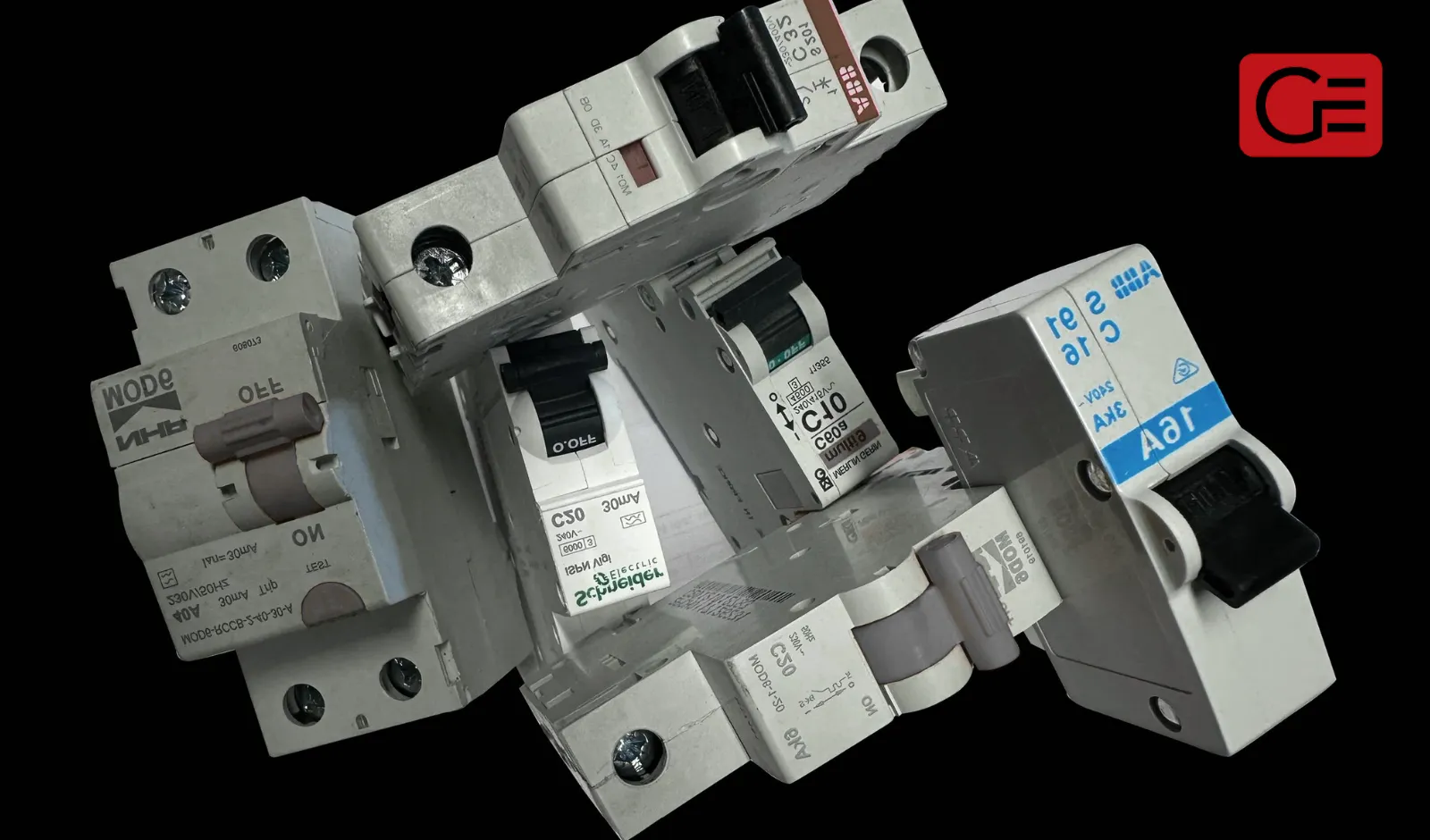
What Happens When a Circuit Breaker Trips?
When a circuit breaker trips, it means it has successfully detected a problem and stopped power flow.
To restore power:
- Turn off or unplug appliances connected to the circuit.
- Flip the breaker fully to the “off” position, then back “on.”
- If it trips again, it’s a sign of a deeper issue. Call a professional electrician immediately.
Never ignore repeated tripping! It could indicate overheating, wiring damage, or short circuits hidden behind your walls. In urgent cases, an Emergency Electrician can respond quickly and restore power safely.
Need Help with Circuit Breaker Repairs or Upgrades?
At Grammar Electrical, we specialise in:
- Circuit breaker replacements and repairs
- Switchboard and electrical panel upgrades
- Safety inspections and energy-efficient rewiring
- Installation of RCD, GFCI, and AFCI protection
Our licensed residential electricians ensure your system meets all New Zealand electrical safety standards, keeping your home safe and compliant.
Final Thoughts
Understanding how a circuit breaker works gives you a deeper appreciation of this small but vital component of your electrical system.
It’s your home’s first line of defence quietly working 24/7 to keep you safe. If you’re experiencing frequent tripping, flickering lights, or an old switchboard, contact Grammar Electrical today. An electrician near you can assess your system, recommend the best solution, and ensure your property is powered safely and efficiently.
Protect your home. Power it safely. Book a service online & save $15!
Auckland’s Trusted Electricians
Fast, reliable electrical repairs, installations & upgrades - available 24/7.
Book Online & Save $15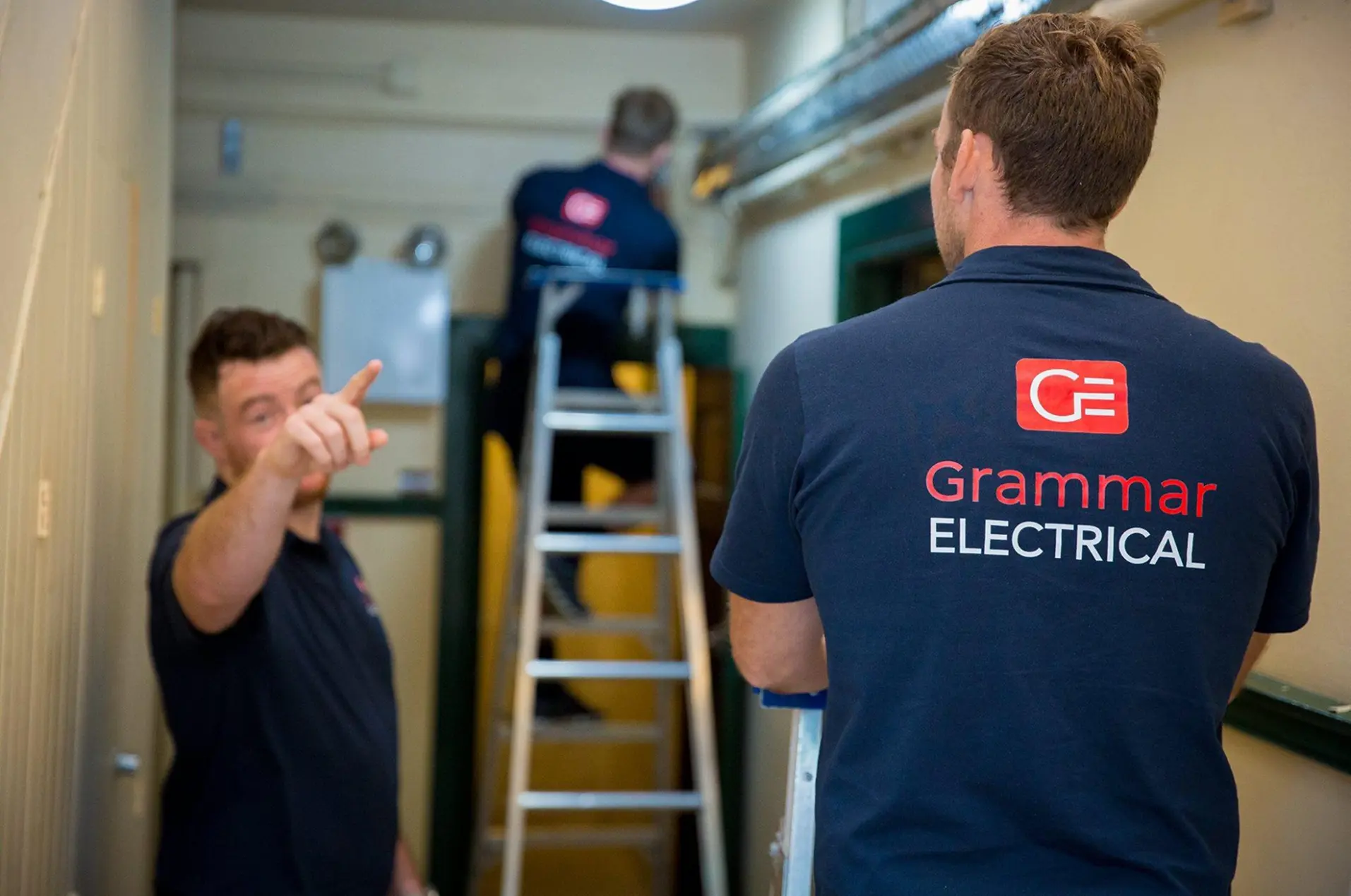
Got a question?
Contact us for a FREE installation quote or book your job online today.
Same Day Service Guarantee - Terms & Conditions

The "Same Day Service Guarantee or it's Free" applies to:
a. Residential work and Commercial only.
b. Jobs specified as needing same day service when booking a job by phone or online.
c. Residential and Commercial work booked with Grammar Electrical:
i) Before 11:00AM
ii) For calls or online bookings received after 11:00AM, the customer will be offered a job. Booking for the next business day and normal callout fees ($170+ GST) will apply.
iii) Any other jobs booked outside business hours (9:00AM - 5:00PM Monday- Friday) will incur after hours charges.
iv) This offer is excluded for jobs booked on New Zealand public holidays.
d. If Grammar Electrical are unable to attend on the same day (within 24 hours) for a job booked by the customer, the standard callout fee of $170 + GST will be waived and is free, but all other normal charges, fees and expenses will apply to perform the Electrical Services and to provide any products/materials concerning those services.
e. The Standard Callout Fee will be deducted from your bill as long as you pay within your invoice's due date. The callout charge is applicable if your invoice is overdue.
f. If Grammar Electrical are willing and able to perform the Service or provide the Goods on the same day the job is booked, however the Customer for whatever reason does not give access to their property on the day, Grammar Electrical will be deemed to have complied with it's "Same Day or it's Free" guarantee and shall be entitled to charge the customer the standard call-out fee.
g. This offer is not a guarantee of work being completed. The completion of the job will depend on stock availability and also the amount of work required.























